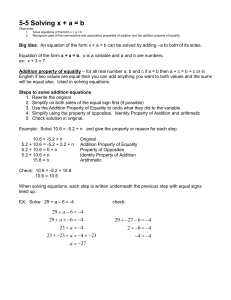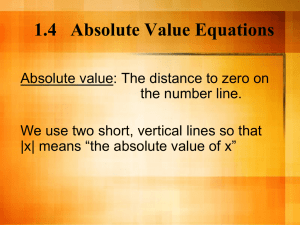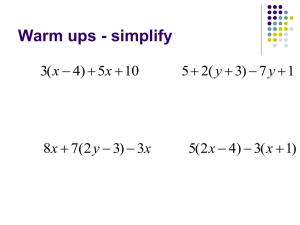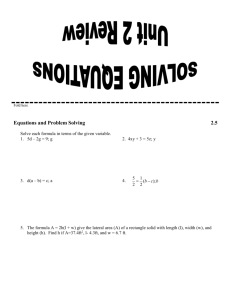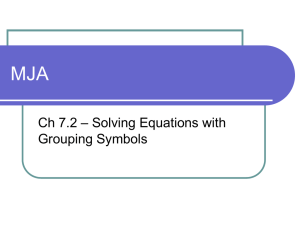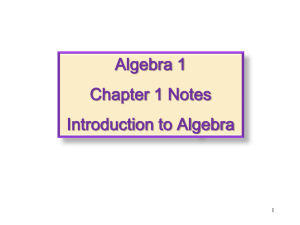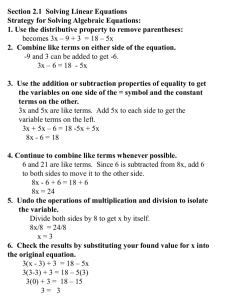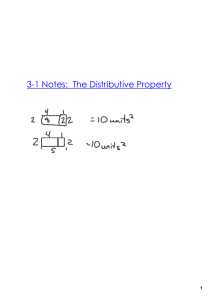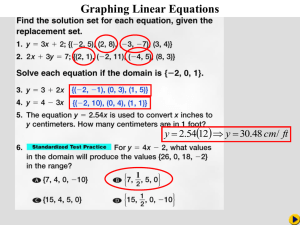3-5 Solving Equations with the variable on each side
advertisement
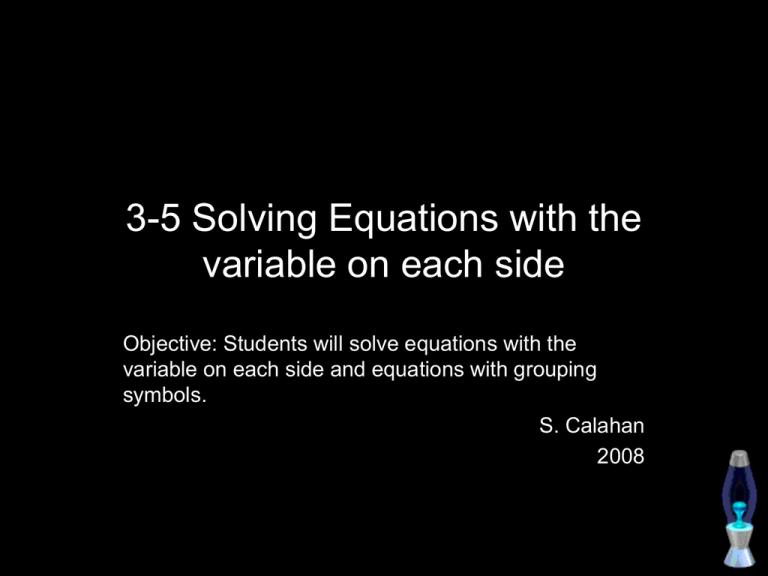
3-5 Solving Equations with the variable on each side Objective: Students will solve equations with the variable on each side and equations with grouping symbols. S. Calahan 2008 Variables on each side When solving equations with variables on both sides use the Addition or Subtraction Property of Equality to write an equation with the variable on only one side. Example: 2x + 4 = x – 2 2x + 4 – x = x – 2 – x x + 4 = -2 subtract x from each side -2 + 10p = 8p – 1 -2 + 10p = 8p – 1 - 8p = - 8p subtract 8p from each side -2 + 2p = -1 +2 = +2 add 2 to each side 2p = 1 divide both sides by 2 2 2 so, p = 0.5 Solve an Equation with Grouping Symbols To solve equations that contain grouping symbols use the Distributive Property to remove the grouping symbols. Example: 2(x + 4) = 10 2x + 8 = 10 7(m – 3) = 7 7(m – 3) = 7 7m – 21 = 7 distribute the 7 + 21 = + 21 add 21 to each side 7m = 28 7 7 divide each side by 7 m=4 No solution Some equations with the variable on both sides may not have a solution. Example: 2x – 5 = 2x + 3 -2x -2x -5 = 3 2m + 5 = 5(m – 7) – 3m 2m + 5 = 5m – 35 – 3m 2m + 5 = 2m – 35 combine like terms -2m -2m 5 = -35 5 does not equal -35 therefore this has no solution An Identity 3(r + 1) – 5 = 3r – 2 3r + 3 – 5 = 3r – 2 distributive property 3r – 2 = 3r – 2 reflexive property of equality Therefore, the solution contains all real numbers Steps for solving equations 1. Use the Distributive Property 2. Simplify the expression on each side. 3. Use the Addition and/or Subtraction Properties of Equality to get the variables on one side and the numbers without variables on the other side. 4. Simplify the expressions on each side of the equals sign. 4. Simplify the expressions on 5. use each side of the equals sign. 5. Use the Multiplication or Division Property of Equality to solve.
